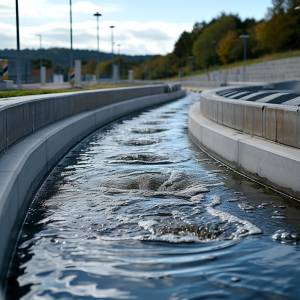Description
Industrial Valves: Critical Components in Public Health Engineering
Industrial valves play a crucial role in ensuring the safe, efficient, and reliable operation of public health engineering systems. From water treatment plants to wastewater management facilities, these valves control the flow, pressure, and direction of fluids, safeguarding public health and protecting the environment. This comprehensive overview details the various types, applications, and essential features of industrial valves in this critical sector.
Types of Industrial Valves for Public Health Engineering:
Our range encompasses a wide variety of industrial valves, each designed to meet the specific demands of different applications within public health engineering:
- Gate Valves: Ideal for on/off service in pipelines carrying water, wastewater, or slurries. They offer a straight-through flow path minimizing pressure drop when fully open. Materials include ductile iron, stainless steel, and bronze, chosen based on the fluid being handled and the operating conditions. Features may include resilient seats for tighter sealing, and flanged or wafer body styles for easy installation.
- Globe Valves: Primarily used for throttling and regulating flow, providing precise control. Suitable for a wide range of pressures and temperatures. Available in various materials including cast iron, stainless steel, and bronze. Common features include renewable seats and stems for extended service life.
- Ball Valves: Known for their quick on/off operation and compact design, making them suitable for space-constrained applications. Suitable for water, wastewater, and some chemical solutions. Materials range from PVC and polypropylene for less demanding applications to stainless steel for high-pressure and corrosive environments.
- Butterfly Valves: Offer a cost-effective solution for large diameter pipelines where space is limited. They provide quick on/off operation and can be used for throttling in some applications. Materials include ductile iron, stainless steel, and high-performance polymers depending on the fluid and pressure requirements.
- Check Valves: Prevent backflow in pipelines, ensuring unidirectional flow. Various types include swing check valves, lift check valves, and ball check valves, each suited for different applications and flow conditions. Materials vary depending on the application and fluid compatibility.
- Control Valves: Used for precise regulation of flow, pressure, or level. These valves incorporate actuators (pneumatic, electric, or hydraulic) and positioners for automated control. They are crucial in water treatment and wastewater processes requiring precise adjustments.
Materials & Construction:
The selection of valve materials is paramount in public health engineering. Common materials include:
- Ductile Iron: Offers a good balance of strength, corrosion resistance, and cost-effectiveness.
- Stainless Steel: Provides excellent corrosion resistance, particularly in environments with aggressive chemicals.
- Bronze: Suitable for applications requiring high corrosion resistance and good thermal conductivity.
- Polyvinyl Chloride (PVC) & Polypropylene: Cost-effective options for low-pressure applications with non-aggressive fluids.
Essential Features for Public Health Applications:
- Leak-Tight Sealing: Crucial to prevent water contamination and protect against leaks.
- Corrosion Resistance: Essential for longevity and to prevent contamination of the fluid.
- Ease of Maintenance: Allows for quick repairs and reduces downtime.
- Compliance with Regulations: Must meet relevant industry standards and regulations (e.g., NSF 61 for potable water).
- Durability & Reliability: Ensures continuous and reliable operation of the system.
Applications in Public Health Engineering:
Industrial valves are integral to numerous processes within public health engineering, including:
- Water Treatment Plants: Controlling flow in various treatment stages, including filtration, disinfection, and storage.
- Wastewater Treatment Plants: Managing flow within different treatment processes, sludge handling, and effluent discharge.
- Water Distribution Networks: Regulating water pressure and flow to ensure adequate supply.
- Irrigation Systems: Controlling water distribution for efficient and safe irrigation practices.
- Stormwater Management: Managing stormwater flow to prevent flooding and pollution.
Choosing the right industrial valves is crucial for maintaining the integrity and efficiency of public health engineering systems. Contact our team of experts to discuss your specific requirements and receive personalized recommendations.
